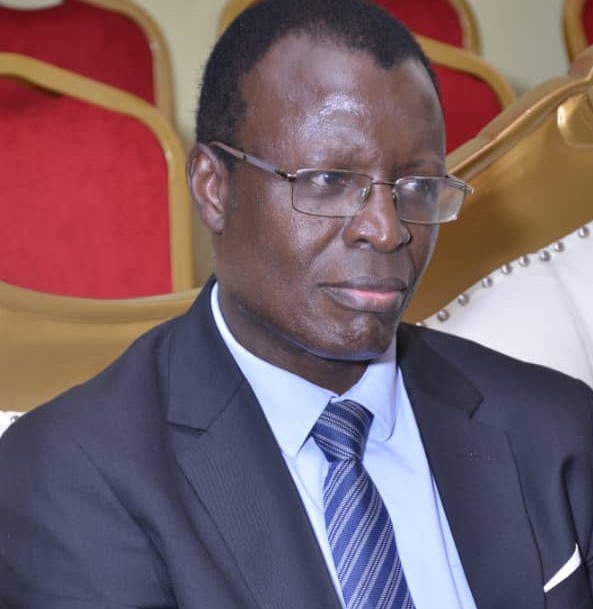You are here
- Home
- Blog
- Equipping Graduates for the Global Stage: Constructing an International Employability Skills Framework
Equipping Graduates for the Global Stage: Constructing an International Employability Skills Framework

In December 2022, Dr Charles Mbalyohere wrote a blog on a collaborative research project between The Open University (OU) and Makerere University in Uganda, which explained an approach to deploying Higher Education (HE) partnerships for improved open and distance learning and employability strategies. Here Dr Mbalyohere teams up with Jessica Giles to explore a theme arising from the research project: namely the concept of international employability.
In his December blog, Dr Mbalyohere identified that a challenge explored by the research project was the generally high unemployment rate among graduates in Uganda and other sub-Saharan African countries (Monitor, 2021). In a 2019 study (Mbalyohere et al., 2019), it was established that it is strategically important to link employability and entrepreneurship skills development more strongly, rather than approaching them individually as has traditionally been the case. Further, that a potential contribution by the OU could be the extension of its employability framework to make it relevant for such regions that are becoming ever more important for the global economy. And that this approach could be mutually beneficial, since the experiences here would further contribute to the OU’s understanding of the needs of the ever-growing number of students from developing countries.
The mutual informing of the concept of employability by the research at Makerere University and The Open University led to a discussion as to what ‘international employability’ might mean. It became evident that, in this context, it is important to understand where students are aiming to find employment and what skills are most valued by employers.
There are a variety of aspects to the concept of international employability depending on where students are intending to find employment:
- The first set relates to those students who aim to remain in their home state but want to develop skills which ready them for a role with an international corporation or International Nongovernmental Organisation (INGO) in their home state. In this case students will live in a familiar culture but will require skills that enable them to work or volunteer for an international organisation. Here there is some cultural adaption required, but it is limited to the work environment.
- Second, there are those students who aim to work abroad. Either for economic or other reasons they travel to find work and settle in a foreign country to work. In this case the student will need to acquire both the skills required by a foreign employer, as well as the ability to live and work in a cultural context potentially very different from their own. Here there is considerable cultural adaption required. Both the work environment and the living environment will need specific skills.
- Third, there are those students who aim to work for an international corporation (a multi-national enterprise, MNE) or an INGO in a foreign country and not just any employer. In this case, once the culture of the MNE or the INGO is learned the student can move across the globe and remain within the culture of the MNE or the INGO. They will need to learn skills of cultural adaptation in order to live in different cultures at different times. This will enable them to settle in any culture whilst working for the same organisation.
- Fourth, there are those students who aim to work transnationally. For example, for the United Nations or other international organisations. This requires a very different approach since, there is a sense in which the student will be lifting themselves out of an understanding of contemporary cultural or national context to live and work in an international community. Such a community may have its own cultural expectations that are more than a summation of the nation states involved.
It is suggested that although there are some common aspects to an international employability framework that can fit these various contexts, each context requires a nuanced approach. Importantly, what is required is that teaching and learning materials articulate to the student which context any particular skills development is aimed at. In addition, that they facilitate a self-reflection by students as to the challenges of working in contexts which might take them outside a familiar culture and away from home. This is to support the students’, and later the employees’, well-being. A student preparing themselves for international employability needs to understand whether they are suited to this type of work and build in mechanisms to support them once they choose this path. HE institutions could also be more pro-active in identifying partner organisations to work with in helping students to start acquiring the relevant skills; for example, through focused internships and other skills development activities.
The AdvanceHE literature review on employability (2021: section 11, esp. 11.3) explores the impact of transnational study on employability. It highlights that, according to Berdrow and Bird (2018: 136): ‘There is a demand for individuals who think transnationally and implement cross-border thinking’. However, research demonstrates that it is easier to obtain employment in the home state rather than in a host state, regardless of skills developed during study abroad. This issue arises from a variety of factors, including that home students are better informed as to how to gain employment in their home state and have stronger contacts there. An international employability framework would therefore need to incorporate skills training on how to identify the steps necessary to find employment abroad or in an international context.
Warwick University on their GlobalPeople@Work website (Warwick University, n.d.) refer to the need for the capacity to work in a VUCA (volatile, uncertain, complex and ambiguous) world. They highlight the linguistic challenges to referring to the types of skills needed to work in an international context, identifying that such skills are referred to variously as intercultural competence, cultural intelligence, global dexterity, intercultural effectiveness, cultural capacity, global competence. For the sake of clarity, it is posited here that whichever terms are used, it is necessary to determine which context the student is aiming for. But it is also important for the student to be aware that what they are aiming for may not necessarily be what they end up doing. There is therefore a need for concurrently developing adaptive skills across the different contexts, while focusing on the preferred contexts.
In light of the different types of international employment which a student is likely to consider, it might be useful in an international employability framework to distinguish between the international contexts in which a student might want to work. Namely, international organisational cultural skills (a student working in their home state but for an INGO or MNE); inter-cultural skills (a student moving to another culture to work); global skills (a student who wants to work for an INGO or MNE in any nation); and international skills (a student who wants to work beyond national boundaries). Some cross-context skills would also be useful.
This blog has sought to demonstrate that the concept of international employability skills is both an important and complex one that merits further research to support students to achieve their aspirations and wellbeing in an international context.
References
- Bedrow, I and Bird, A (2018) ‘Development and assessment of intercultural effectiveness: A learner centred approach.’ Journal of Education 198(2): 136-145.
- Dalrymple, R.; Macrae, A.; Pal, M.; and Shipman S. (2021). Employability: a review of the literature 2016-2021. AdvanceHE.
- Mbalyohere, C.; Aguti, J. and Nabushawo, H. (2019). Open and distance learning (ODL) as a strategic tool for improving employability and entrepreneurship in new frontier markets: the case of Uganda. In: Pan Commonwealth Forum 9 (PCF9), 9-12 September, Edinburgh, Scotland, Commonwealth of Learning.
- Monitor (2021) 87% graduates can’t find jobs. Online. https://www.monitor.co.ug/uganda/news/education/87-graduates-can-t-find-jobs-1691574 (Accessed: 25.11.2022).
- Warwick University (n.d.) GlobalPeople@work. Source available for access here (Accessed 16 May 2023).

Dr Charles Mbalyohere
Dr Charles Mbalyohere is a Senior Lecturer in Strategic Management within the Faculty of Business of Law at The Open University.

Jessica Giles
Jessica is a Law Lecturer at The Open University. She took her Undergraduate Law Degree at Durham University and her Masters in International Human Rights Law and European Union Law at Bristol University. She studied Theology at The Open Theological College and Theology of Law at Spurgeon’s College. She qualified as a Solicitor in 1991 and transferred to the bar in 2016.
She has worked as a law reporter for the Incorporated Council of Law Reporting for England and Wales in the Chancery, Queen’s Bench and Administrative Divisions of the High Court as well as in the Court of Justice of the European Union. She has taught EU External Relations Law at Bristol University and, Open University undergraduate modules: Rules, Rights and Justice (Introduction to Law); Understanding Law (English legal Systems and EU Law) and Public Law. Also, OU Master's degree module Business, Human Rights Law and Corporporate Social Responsibility.
She gained her Fellowship of the Higher Education Academy in 2015 and Senior Fellowship of the Higher Education Academy in 2016. She was an Associate Editor of the Oxford Journal of Law and Religion, OUP, 2011-2022.
She is currently working on module production teams in the field of Property Law.

Blog posts
- Rethinking Tuition: Reflections from the Staff Tutor / Student Experience Manager (SEM) Symposium, 4-5 December 2024 6th June 2025
- ‘Hitting the keyboard’ : Exploring student feelings and approaches to developing legal research skills 9th May 2025
- From Feedback to Action: The Student Voice Festival in Law Education 15th April 2025
